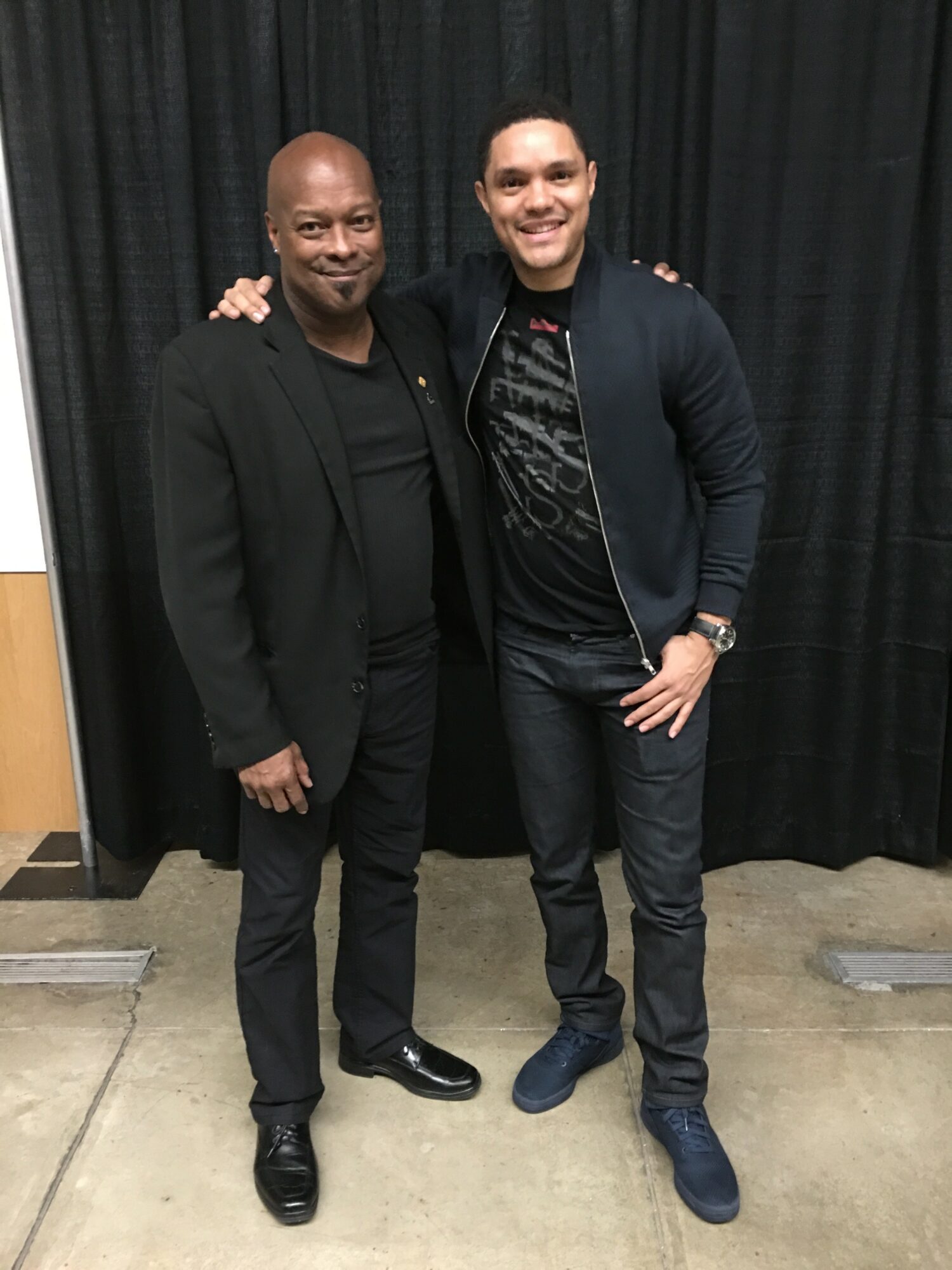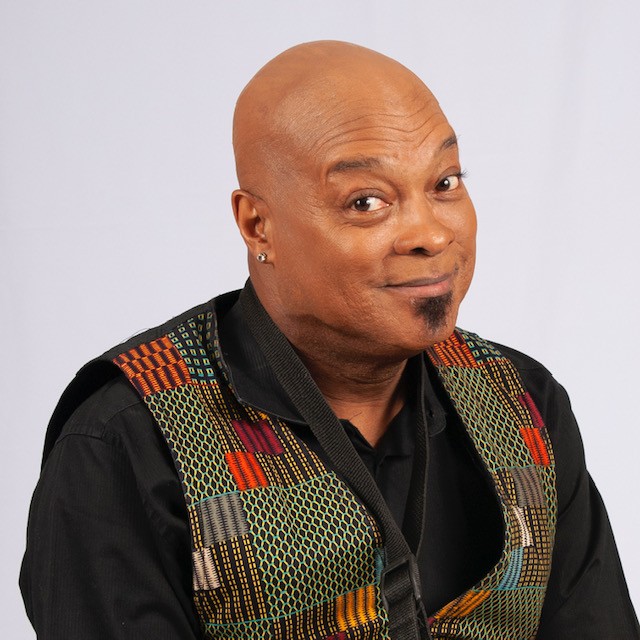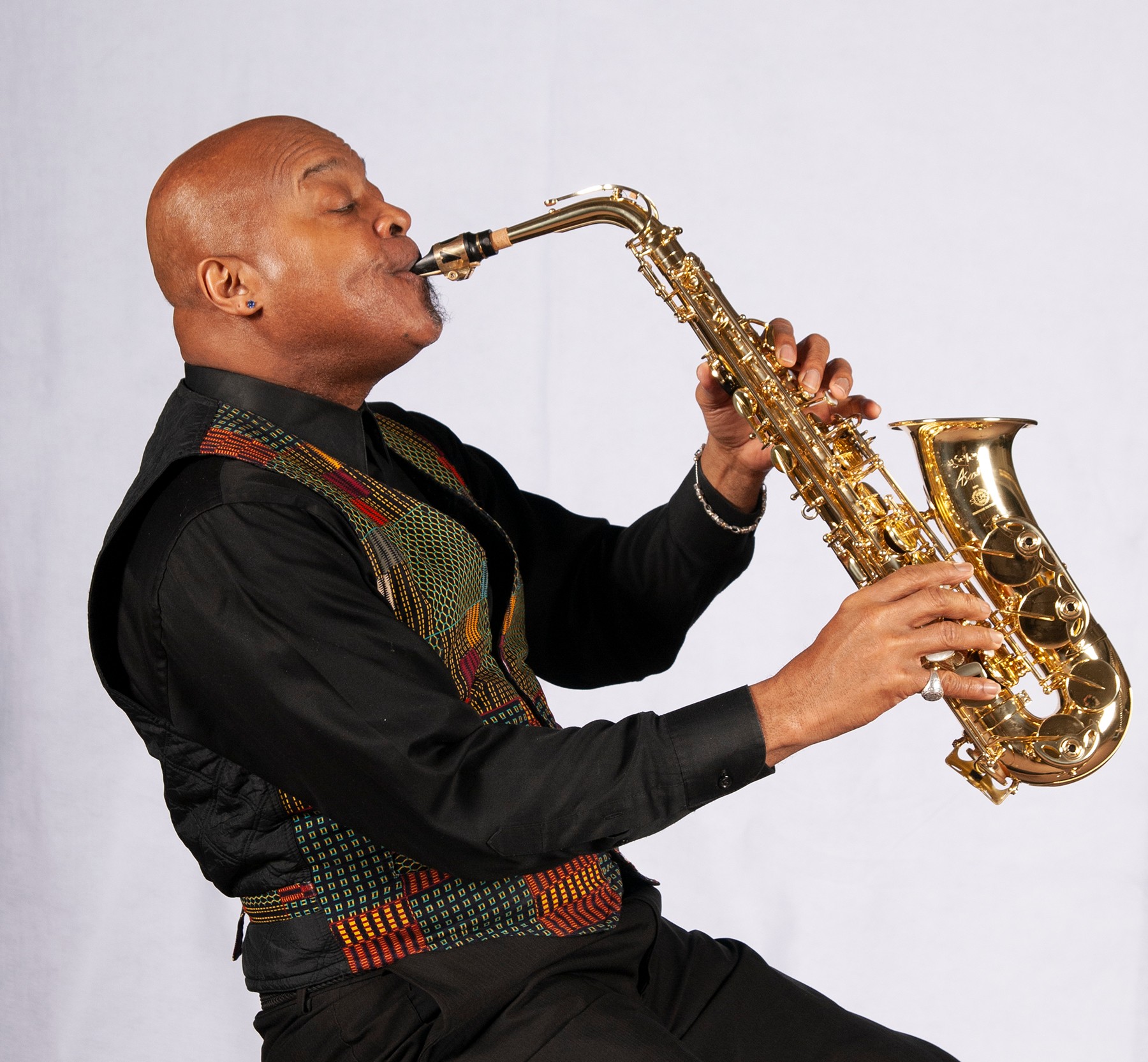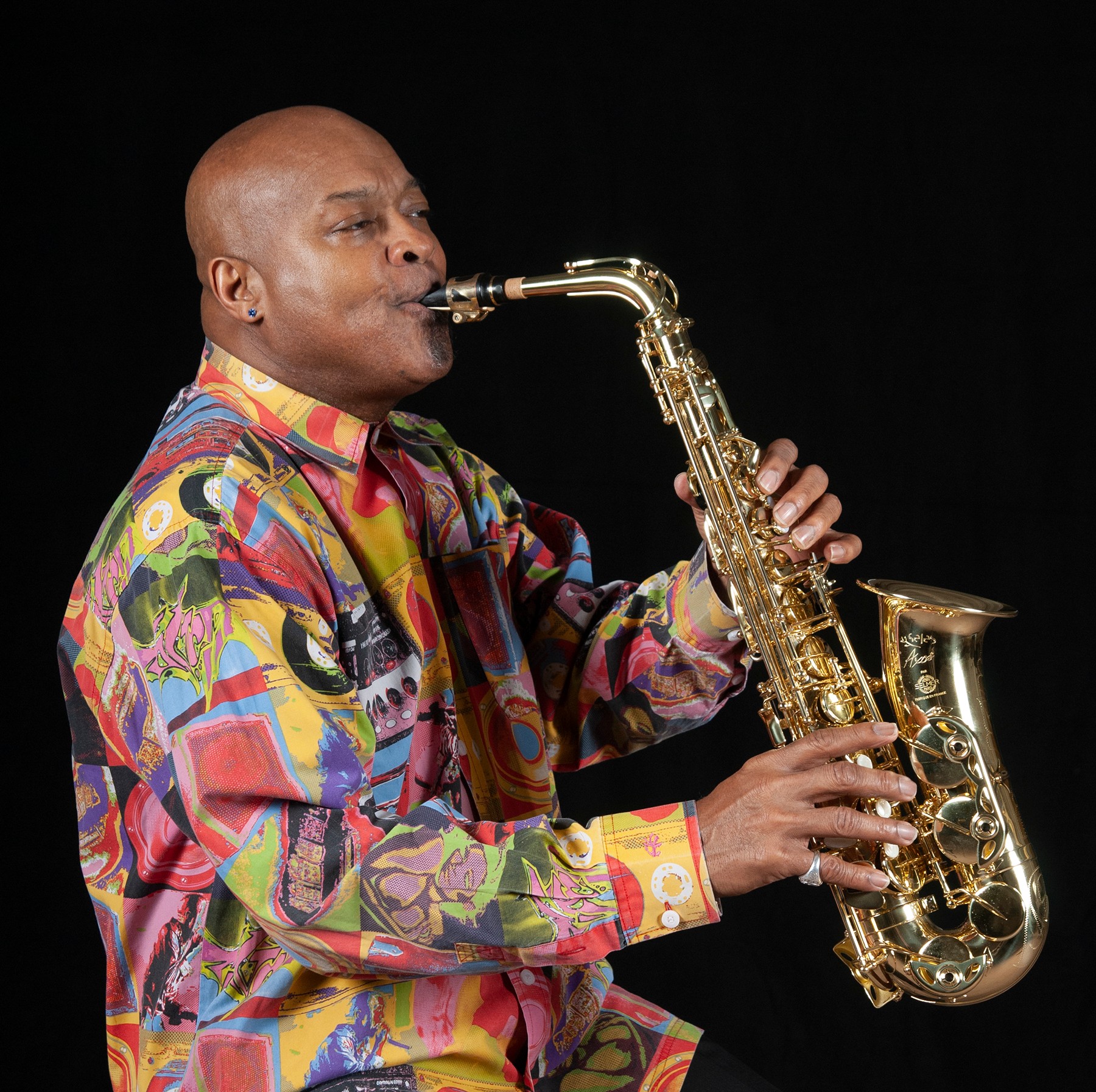

Today we’d like to introduce you to Horace Alexander Young.
Hi Horace Alexander, can you start by introducing yourself? We’d love to learn more about how you got to where you are today?
I was born in Houston, TX as the son of Horace Alexander Young, Jr and Mary Louise Young- who were faculty members at Texas Southern University. The youngest of three (and the only boy), I had a typical childhood and as I grew older, my parents sought to provide what they felt was a well-rounded upbringing and general education. That meant being exposed to a wide variety of things. I learned to swim at a young age and my preschool offered a dual-language format where we studied English and Spanish equally. Music (piano lessons) and dance (primarily for my sisters) was a big part of that environment as well. While neither of my parents was musically inclined, they placed all three of us in private lessons and we participated in school and community musicals, theatrical plays and other arts-oriented activities. I enjoyed all of this, but as I got older, the idea of doing something independent from my sisters became a decided goal. I chose to play the flute out of curious interest, and I knew that also meant getting out of piano lessons – since my parents could only afford but so much. It is funny the things you can figure out at 10 years old! I played well enough to make the advanced band my 7th-grade year at Ryan Jr. High, where my band director, the recently deceased Edmund Broussard (formerly of The Count Basie Orchestra) gave me a solid foundation in overall playing and my first introduction to playing Jazz. I also took private lessons from Hal Tennyson (formerly of The Glenn Miller Orchestra). The combination of information I got from both of them was extraordinary and at the age of 13, I started playing gigs around Houston with a “garage band” named Charley and The Soul Cane. It was a fun experience and I learned to improvise quickly. It was fun while it lasted, but the experience ended negatively for me and I later was drawn to sports like many kids my age. That resulted in five years of football and track and going into and through high school that became a serious focus and music became a hobby. All of that changed however during my senior year in high school (Jack Yates Sr. High) and since the age of 18, music has been my focused commitment. Much of my growth as I went into college was stimulated by my attending the Summer Jazz Workshop, which was founded by the late William “Bubbha” Thomas and the legendary educator Conrad O. (Prof.) Johnson, whose career was documented in the film, THUNDERSOUL. It was in this workshop that I learned a great deal about Jazz from many angles and points of view and I wrote my first composition, COUNTRY FRIED CHICKEN. It was recorded by a regional/national level group, Bubbha Thomas and The Lightmen and it featured saxophonist Ronnie Laws, who at that time had just left Earth Wind and Fire to pursue a solo career. This would be the start of a connection with that program and the founders that would continue forward for many years.
I begin to play with bands around town and I attended Texas Southern University (TSU) on a marching band scholarship as a member of the famed OCEAN OF SOUL MARCHING BAND. While that scholarship “paid the bills” in terms of tuition, the experience of learning and working with direction from Prof. Benjamin J. Butler, II and his staff was foundational for me in the development of my skills in the areas of arranging and composing music – since the band generated custom-made arrangements from its own staff of writers. This included faculty and some students who had become accomplished in this area. Having always been interested in this aspect of music, I was actively engaged in this environment my entire time there. At the same time, I was blessed to participate as fully in the award-winning TSU Jazz Ensemble, which was co-directed by the late Lanny Steele and Dr. Howard C. Harris. This also gave me a platform to learn to play and write in the Jazz idiom and have a platform for my music to be performed and recorded. By this time I had begun to play the saxophone and my teacher there was Campbell “Skeets” Tolbert, who had played and recorded actively in New York, prior to retiring from the industry and moving to Houston in the 1950s to teach at TSU. Like my previously mentioned teachers/mentors he emphasized the idea of being a “360” musician and supported learning to play,, compose, arrange and record all styles of music at a very high level. He had done all of that as an artist with Decca Records and also wrote Nat King Cole’s first big hit, HIT THAT JIVE JACK. That song has been recorded over 60 times- most recently by Diana Krall and John Pizzarelli. The foundation for what I have done throughout my career was firmly planted during this time and in my subsequent training in graduate school at The Shepherd School of Music (Rice University) and Washington State University (Pullman, WA) The rest of my training in the “real world” is an outgrowth of that time.
Can you talk to us a bit about the challenges and lessons you’ve learned along the way. Looking back would you say it’s been easy or smooth in retrospect?
The road for me has definitely not been a “smooth ride”. Like many people in the music business, I have experienced highs and lows over various periods of time throughout my career. However, it is the middle ground between those two extremes that have really tested and encouraged me. It is like learning to swim. Once you get past th fear of the water, you have to develop the strength and the skill to tread the water and swim above and below the surface. From there, you learn the techniques and mechanics of the “art and the craft” of swimming and it becomes a life-long experience. That has been my life in music.
I was also challenged to achieve excellence in craft in the most competitive market in the world, during my decade-long residence in New York City. It was there that I perfected my writing skills as an arranger, composer and songwriter, while building a vast network of colleagues in the business and friends who would become part of my lifelong “tribe”. I developed working relationships that brought me into projects with record companies, Broadway plays and touring artists and bands. of a wide variety of genres. The shortlist included The Manhattans, Regina Belle, Johnny Kemp (Just Got Paid Tour), Dionne Warwick, Gerald Alston, Nancy Wilson and NEA Jazz Masters Abdullah Ibrahim and McCoy Tyner (The McCoy Tyner Big Band). These and countless more opportunities became available mostly because the environment required the element of “hustle”, commitment and the honesty of self-awareness. My survival artistically and personally was dependent on maintaining the necessary drive and dedication to grow and produce on a consistent basis. This was a constant and unending challenge that I embraced and still do to this day.
Thanks for sharing that. So, maybe next you can tell us a bit more about your work?
As a career professional musician, my performing ability has been developed and maintained as an instrumentalist and vocal musician. My instrumental skills include performance on saxophone (soprano, alto and tenor), which is now my primary instrument; flute (piccolo, C flute and Bass flute); singing as a soloist (primarily Jazz), and as a session background performer and playing basic support piano/keyboard in touring bands. In recent years, arranging music has become a bigger part of my work-especially orchestral writing. I just completed a Christmas show of pop music for The Boise Philharmonic Orchestra (which featured Portland, OR based singer Samantha (Sam) Trulock.
I also spent several years touring, playing and recording with numerous solo musicians and groups. This has led to my appearing on over 100 recordings and having a chance to play with and/or write arrangements for some of my favorite artists when I was growing up – B.B. King, Bill Withers, The Crusaders, Johnny Nash and Aretha Franklin. During this same time period, I also taught many students privately and on the music faculty at six universities (Texas Southern, Washington State, Sonoma State, Rutgers, Houston Community College and Santa Fe University of Art and Design). I strongly believe that my living in the “real world” of the rigors of the music business and also being in the classroom brought the experience of what it takes to do this and be successful to my students as a living example. Many of my students have done very well in many areas of the profession. Among that many are multiple GRAMMY winners, one Oscar recipient and several successful label recording artists. That is an amazing feeling.
Of all of my musical experiences, I am most proud of an appearance I made as a Guest Conductor of the National Symphony of South Africa (NSO) held at Symphony Hall (Johannesburg) in April of 1993. This concert featured the music of South Africa’s most prolific composer, Abdullah Ibrahim (Dollar Brand) – with whom I toured and recorded for 17 years. I wrote all of the arrangements of Mr. Ibrahim’s most noted compositions and the concert was aired on national televison for two nights. This was the first time a Black conductor took the baton in front of that orchestra (or any major orchestra in that country) and was an influential event in many ways. I was also a featured alto saxophone soloist and through subsequent recordings and many tours since, I have had the distinction of contributing to the style and content of players who have developed in that country. Curiously, in a 2016 while visiting my daughter who was a student at Washington State University, I had a chance to meet Trevor Noah who was performing there. She took a picture with him and afterwards introduced me and told him I was a musician. When I told him of my first performing visit to his native country, he said “I remember that. It was on TV and was a really big deal. I was only 9 years old then, but I remember that!”
I must also add that making and releasing my solo CD/Album, Acoustic Contemporary Jazz (2008) was a joy and a labor of love. I got to perform with a large number of musicians from various places in the USA and on my instrumental remake of the Luther Vandross classic, DANCE WITH MY FATHER, I got to record with my two kids Victoria-Pearl and Alexander, who were 8 and 4 years old at that time. That record still gets played to this day, and regularly on Father’s Day. https://youtu.be/XF_JVK8_GoE
The COVID-19 crisis has affected us all in different ways. How has it affected you and any important lessons or epiphanies you can share with us?
During the pandemic, I was fortunate to be able to teach all of my classes online. I also wrote a lot of music, practiced my instruments and worked out to get in great physical and mental condition. While there were no performances to play, I did not experience the economic fallout that many others in the music world had to endure as a result of my teaching job. This made me very humble and appreciative of the benefits of my education and training and happy that I put in the work to be employable and multi-faceted in my approach to working in the music industry. Most of all, I took the time to communicate with people of many walks of life. Lastly, in 2020 alone, I was very fortunate to play on five CD/Album recording projects that were released nationally. From that same time period, I developed a personal and musical friendship with Philadelphia based drummer-percussionist- composer-producer Kevin Outterbridge. The first product of that connection was just released on 11/18/22 and is already receiving airplay and positive feedback in various markets in the USA and UK. Check it out on YouTube – Kevin Outterbridge: IN THE POCKET (featuring Horace Alexander Young). https://you.be/bTtTiaSnfZQ
The biggest takeaway for me was to make COVID-19 the reason I accomplished my goals and not the reason I fell short.
Contact Info:
- Website: https://pacificcoastjazz.com/horace-alexander-young/
- Other: https://en.m.wikipedia.org/wiki/Horace_Alexander_Young




Image Credits
Michelle M. White (all pictures, except photo with Trevor Noah)
VP Wright (picture of HAY with Trevor Noah)










